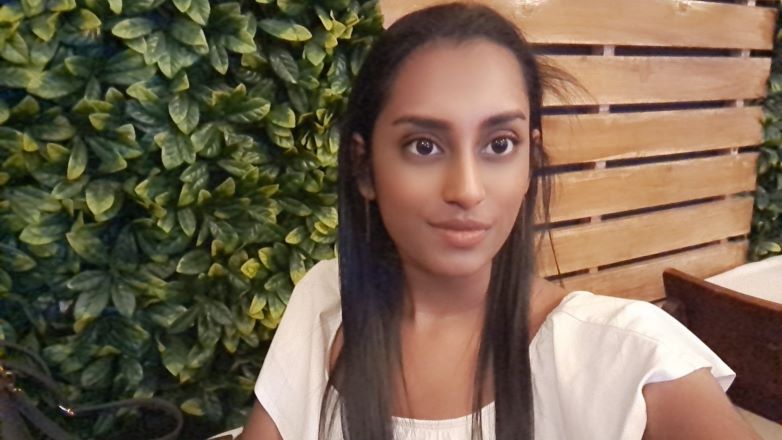
The female pioneers of modern engineers are disrupting the South African landscape and paving the way for the youth to become involved in an industry that desperately needs the unique skills women bring to the table.
“It’s sometimes intimidating to be in the minority and feel like you have to work extra hard to prove yourself. But, the brightest diamonds are formed under immense pressure. The female engineers of the last few decades have and continue to blaze the trail and make it easier for more young women to pursue a fulfilling career in engineering,” says Siyathemba Mhlebi, a mechanical engineer and Project Services Manager at Erudite.
As a leading engineering, procurement, and construction management (EPCM) company in South Africa, Erudite is celebrating females in engineering and their contributions to the industry by putting the spotlight on one of their inspiring female engineers. According to Erudite CEO, Johann de Bruin, the company is committed to diversity and inclusion, prides itself on empowering women in the industry, and continually strives to create role models for the next generation of women in engineering.
“It’s important to diversify to remain competitive on a global scale. Women bring unique skills, problem-solving abilities, and fresh perspectives to projects – all things that are key components for companies looking to establish, develop, and maintain a status of world-class engineering and project delivery. We support the female engineers who are going out of their way to make a difference in the industry, and with their help, we intend to create a more inclusive industry filled with female role models who will inspire the next generation,” says de Bruin.
Discovering a world of possibilities
Mhlebi’s goal is to encourage young girls to follow in her and her fellow women in engineering’s footsteps by explaining what to expect, teaching them how to overcome the challenges she herself faced, and showing them just how important it is for the country to have more women in engineering.
She explains that her journey started during a job exhibition at her high school in rural Eastern Cape. At this point, she knew she had a love and aptitude for physics and maths and wanted to do something that spoke to those subjects but didn’t know what that would be. “As I walked up to a couple of booths, I noticed that a surprising number of women were working in the field of engineering and knew I simply had to ask them a few questions. With a new career opportunity in my sights, I only needed to convince my mother.”
According to Mhlebi, engineering wasn’t one of the so-called acceptable traditional careers that every mother in her rural town wanted their child to follow – careers such as teacher, nurse, or doctor. Her first challenge was to teach her mother what engineering is and convince her that it was a lucrative field where she would easily find employment.
“Both my mother and I were looking for something that would give me more employment opportunities and challenge my capabilities. I learned that engineering opens doors to professional advancement, is one of the top-paid professions in the world, most engineers are always employable, and that there are a number of very different directions you can go into in the field.”
Women as a cornerstone of engineering
De Bruin reveals that, in Erudite’s experience, diverse teams tend to consistently outperform other teams. Having representatives from different walks of life bring varied perspectives and unique problem-solving skills. Female representation is important for young girls to see the industry as a prospective career.
Mhlebi adds that, “Diversity in the workplace is critical because it unites individuals with different perspectives, fosters innovation, and drives better business outcomes. By embracing diversity, organisations can tap into a wider range of creative ideas, become more efficient at identifying and solving problems, and grow more flexible so that teams can tackle anything that comes their way.”
Companies are continuously working towards implementing equality-centric practices, and the engineering industry in South Africa is seeing more female representation in previously male-dominated fields than ever.
“I see so many new, talented, and awe-worthy women coming in, changing the way companies look at problems and inspiring both the women and men around them to be more and do more. We have come a long way since I started in the field, and I am happy to say that many companies are doing their utmost to mentor young women and give them equal opportunities to their male counterparts. There is now truly a sense of mutual respect, making this the best time ever to enter the field.”
Mhlebi encourages young girls to pursue their dreams in Science, Technology, Engineering and Mathematics (STEM) and to not be afraid of entering male-dominated fields. “You need to create new things and you need to be open to new possibilities. That is how you discover and make your way into a rewarding and fulfilling career.”
More news
- CELEBRATING EXCELLENCE IN THE RESIDENTIAL PROPERTY SECTOR
- PART 4: GIBS PANEL DISCUSSES INTEMEDIATE CITIES ROLE IN AFRICA’S DEVELOPMENT
- EXPOSED AGGREGATE PAVERS COMPLEMENT NEW LIFESTYLE CENTRE
- GIBS PANEL EXPLORES ROLE OF INTERMEDIATE CITIES IN SA’S DEVELOPMENT PART 3
- CITI-CON’S CONCRETE KNOWLEDGE SUCCESSFULLY DEPLOYED ON NEW LANDMARK DEVELOPMENT



